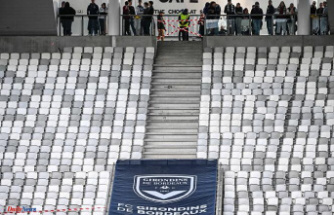Many Japanese became enthralled by the Games' opening ceremony, when local media began to cover the Japanese athletes' "medal rush". Many Japanese watched TV to cheer for Japanese athletes at an Olympics that concluded Sunday with a record number of medals, including 27 gold.
Japan is still being questioned about hosting the Games. Recent days have seen record-breaking numbers of cases of viruses. For now, however, there is still a sense pride and goodwill.
Keisuke Uchisawa (27), a worker in an office, said that "having the games during the pandemic wasn't a good idea." He said that the medal haul was "very exciting" and "stimulating." We cheered on the athletes once the Games began and just enjoyed watching them.
Yuki, his wife, was a medical worker and worried about the pandemic. She began to cheer when she saw patients beaming at her hospital as she watched the Games. She said, "I saw the power and beauty of sports, it was amazing to me." "Athletes gave outstanding performances and we wanted them to win, so we cheered for them."
A couple was shopping in a Tokyo official goods store when they were looking for matching Olympic shirts and pandemic masks. On a recent weekday, the store was packed, despite being almost empty prior to the Games. Many of the customers were likely to have been workers in the area who stopped by for lunch.
Many Japanese expressed opposition or reluctance to host the Olympics in a time of pandemic, which was, for them at least, getting worse. The Games' image was also damaged by a series of resignations from Olympic-linked officials due to past bullying, sexism and Holocaust jokes. Protests were held on the streets of Tokyo and on social media.
However, many of the opponents began to cheer after the opening ceremony.
According to Video Research, more than half of Japan watched the opening ceremony. This is the highest rating given for an Olympic opening ceremony in Japan since the 61% rating for the 1964 Tokyo Games.
Many people waited in line to take selfies outside the National Stadium where demonstrators held anti-Olympic rallies. They were the closest to spectator-free, locked-down stadiums.
In recent weeks, opposition to the Olympics has been steadily falling. The poll by the Asahi newspaper, just before the Olympics, showed that opponents dropped to 55% from 70% earlier in the year. 56% of respondents also said they would like to see the Games on TV. Separate surveys by TBS Television and Yomiuri newspapers at the conclusion of the Games revealed that more than 60% of respondents thought it was good to host the Games.
People who felt uncomfortable by the initial unwelcome mood began to feel better.
Asuka Takahashi (21-year-old student) said that it was scary to board a train in an Olympic volunteer uniform early on when many people were still strongly against the Games. After the Games began, she felt less tension and believed that more people were interested than she initially thought.
Takahashi also noticed that many of the merchandise in Olympics stores was out of stock when she visited them recently. She said that many Japanese are enjoying the Olympics at the end.
Yoshihide, the Prime Minister Yoshihide, was criticized for insisting that the Olympics be hosted despite the virus. He likely hoped for this shift in sentiment. His government has been working to reverse the decline in support ahead of the fall general elections.
Tateo Kawamura (a veteran lawmaker from Suga's ruling party) said that "Japanese Olympians will give us strength too." Suga called Naohisa Takato, the Japanese judoka, to congratulate her. She has also publicly congratulated other medal winners via Twitter.
Suga repeatedly claimed that there was no evidence linking the increase in cases to the Games. In fact, only 400 positive cases were reported within the Olympic bubble from the opening ceremony of July through the closing ceremony.
However, the outcome of the virus could determine whether or not the Games can lift public sentiment.
"The government has forced us to hold the Olympics and Paralympics to regain popularity... but it's risky gamble," Seigo hirowatari, an emeritus University of Tokyo law professor, stated during a recent online conference.
Some people see the Olympics as a positive thing, but others are still opposed. A new term has been coined to describe the growing pressure to support, or even talk about the Games. It is called "Olyhara", or Olympic harassment.
Experts in medicine have raised concerns about the rapid rise of virus infections in Tokyo. Daily cases rose to new heights during the Olympics. Tokyo saw 5,042 cases on Aug. 5, an all-time high, since the pandemic started in early last year. Experts believe that the continuing infections caused by the more contagious Delta variant could increase the daily case load to over 10,000 in two weeks. Nationally, there were more than 1 million cases and 15,300 deaths.
Japan's government has introduced a controversial new policy last week in which coronavirus patients suffering from moderate symptoms will be allowed to stay at home due to the strain on hospitals. The government stated that this policy was necessary despite an increase in the state of emergency from Tokyo, to larger areas, which will continue until August 31st.
"If you turn the TV on, there is only the Olympic Games. People are not experiencing a crisis" over the exploding infectious diseases amid the festivity, stated Dr. Jin Kuramochi. He is a specialist in respiratory medicine. "People will see the truth after the closing ceremony."
Opponents of the Games argue that the money should have gone to health care and economic support for people and businesses affected by pandemics. Concerns have been raised about the $15.4 billion Games cost, which was largely borne by tax money from Japanese citizens.
This leads to sentiments such as the one expressed by Yoko Kudo (a preschool teacher).
She said that she hoped, "at the very least the rest of world will be grateful to Japan for achieving these Games despite all the difficulties."












